I am using q and I have multiple mongoose .exec() promises that never gets to the .then() part of the code, so never allow the q to resolve. Can't figure out why it never comes back.
var defer = q.defer();
var promises = [];
console.log('Exams:', exams.length);
for (var e=0; e<exams.length; e++) {
console.log('Exams:', exams[e]._id);
var newPromise = Pupilexam.find({ _exam: exams[e]._id }).populate('_user').exec()
.then((pupils) => {
console.log("Adding pupils", exams[e]._id);
exams[e].pupils = pupils;
resolve(exams[e]);
})
.catch((err) => {
reject(err);
});
console.log(typeof newPromise);
promises.push(newPromise);
console.log("Promised pushed");
}
q.all(promises).then(function(data){
console.log("q'd all");
defer.resolve(res.status(200).json(exams));
});
return defer;
The Pupilexam.find().exec() never reaches the .then() so the promises never resolve and the defer never resolves. Why would the mongoose find not get to the .then()? What have I missed?
*** UPDATE ***
Even using the built in promises, we get the same issue. The Pupilexams.find() call never comes back.
var promises = [];
for (var e=0; e<exams.length; e++) {
console.log('e:', e);
console.log('Exam', exams[e]._id);
var newPromise = Pupilexam.find({ _exam: exams[e]._id }).populate('_user').exec()
.then((pupils) => {
console.log("Adding pupils", exams[e]._id);
exams[e].pupils = pupils;
})
.catch(handleError(res));
promises.push(newPromise);
}
Promise.all(promises).then((exams) => {
console.log(values);
res.status(200).json(exams)
});
With this method I also get a headers error on the call UnhandledPromiseRejectionWarning: Error [ERR_HTTP_HEADERS_SENT]: Cannot set headers after they are sent to the client
** ADDITIONAL CODE REQUESTED **
function handleError(res, statusCode) {
statusCode = statusCode || 500;
return function(err) {
console.log(err.message);
res.status(statusCode).send(err);
};
}
